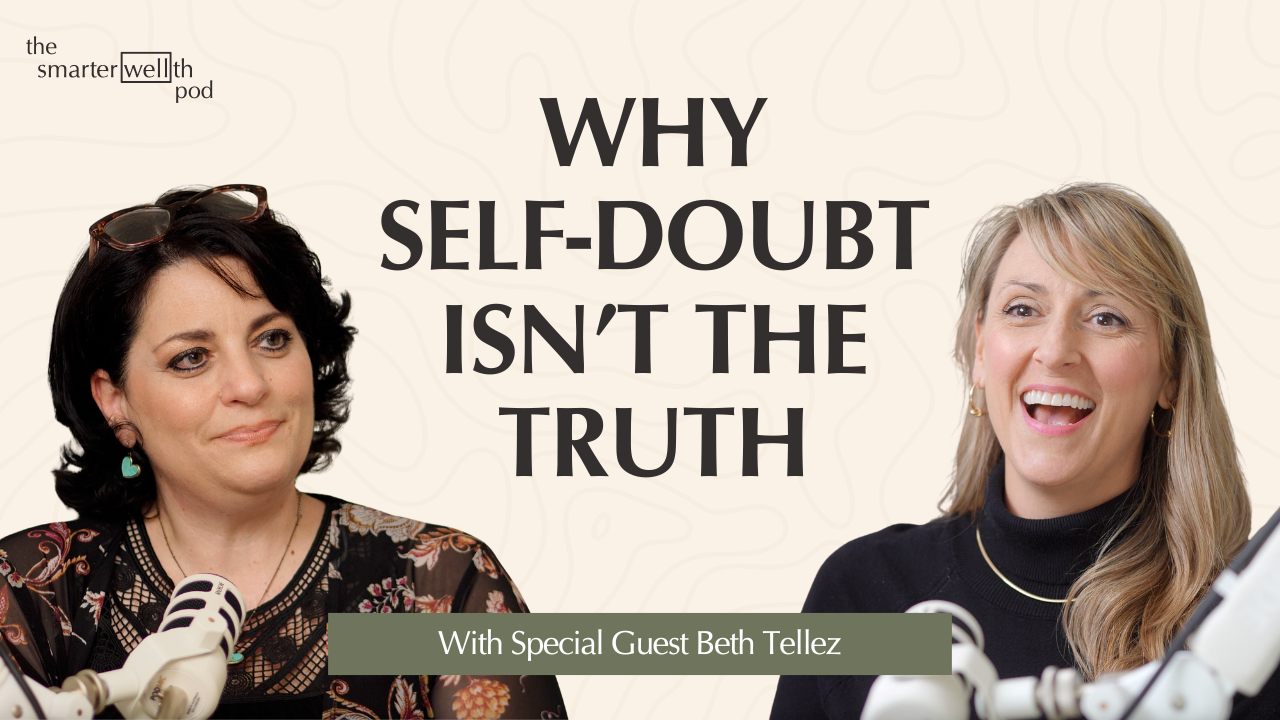
Let’s be honest—most of us have an inner self-doubt critic that’s a little too loud.
You know the one. The voice that whispers,
“Who do you think you are?”
“Why would anyone listen to you?”
“Maybe you’re just… not enough.”
In this recent episode of the SmarterWellth podcast, I sat down with one of my favorite people and resident therapist, Beth Tellez, to talk about where those voices come from—and how we can finally stop letting them run the show.
Beth introduces us to something called a scarcity statement—a deeply rooted belief we form early in life that convinces us we’re not enough. These aren’t just passing thoughts; they’re core narratives that shape how we perceive ourselves, how we present ourselves in relationships, and how we engage with the world.
Think: “I’m too much.” “I’m not smart enough.” “That dream isn’t for people like me.”
Over time, these beliefs can become so familiar, we stop questioning them. We carry them into adulthood, into the boardroom, the PTA meeting, the mirror. And they become our truth—even when they’re dead wrong.
Beth explains that many of these messages begin in childhood, not because we had “bad” parents or teachers, but because, as kids, we’re wired to seek love and safety. If staying quiet kept the peace, or people-pleasing earned praise, we learned to silence our needs and shrink ourselves just to belong.
The brain, doing what it does best, takes notes:
“This is how I get accepted.”
“This is how I stay safe.”
“This is who I have to be.”
But what helped us survive back then? It doesn’t always serve us now.
This isn’t just feel-good fluff. It’s neuroscience. Beth shares how the brain is wired for change through a phenomenon known as neuroplasticity. That means we can rewire those old thought patterns and start to write a new script.
Here’s the kicker: it can start with just one word.
One mantra.
One loving reminder taped to your mirror.
Because words don’t just affect our mood—they affect our biology. Positive affirmations literally light up different parts of our brain and release feel-good chemicals, like serotonin and dopamine. Negative ones? They flood us with cortisol and keep us stuck in survival mode.
If this feels familiar—if you’ve been living in a loop of “not enough”—you’re not alone. And you’re not broken.
Here are a few ways to start changing the story:
As Beth says, “Naming it is where healing begins.” When we can identify the story, we can choose whether it still gets to shape us.
This conversation is one I’ll be carrying with me for a long time. Because the truth is, healing doesn’t happen in one epiphany. It happens in small, brave moments—when we choose to speak kindly to ourselves, when we raise our hand, when we show up messy and real and still say, I belong here.
If you need that reminder today, this episode is for you.
And don’t forget: You are enough. You’ve always been enough.
Want more?
Join the SmarterWellth community for honest conversations, monthly wellness notes, and support from women who get it. Sign up here.